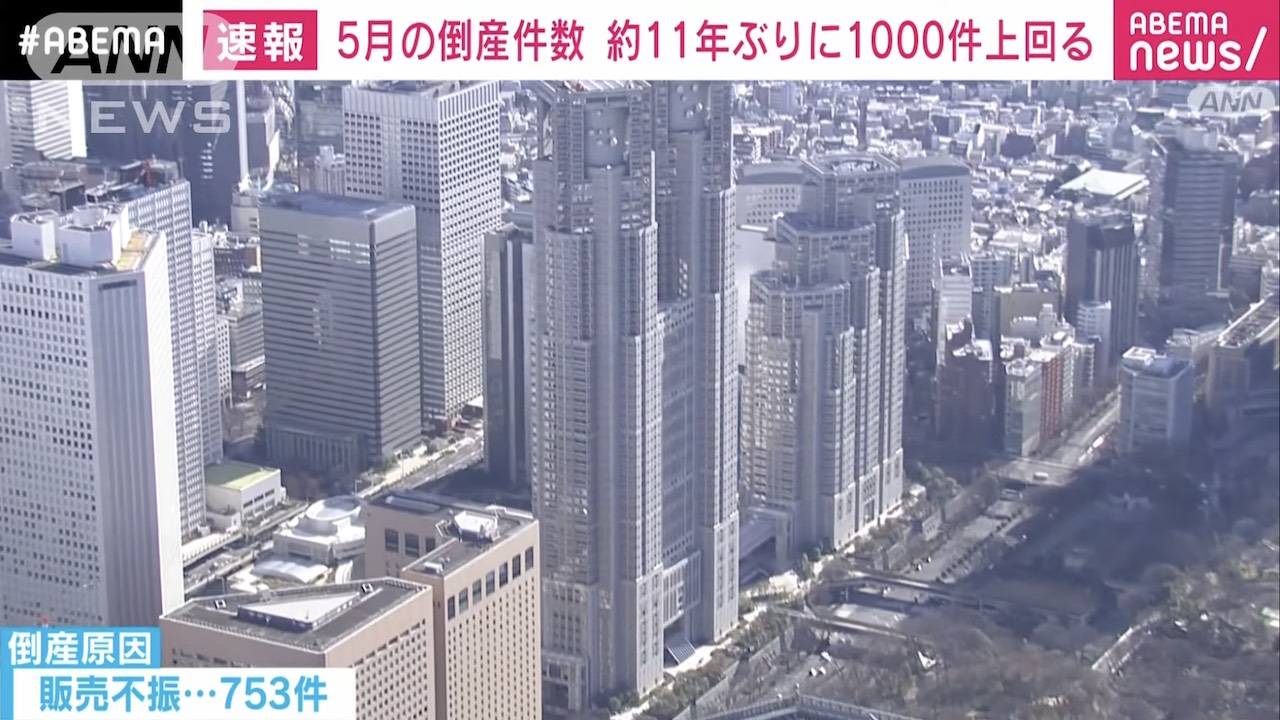TOKYO, Jun 10 (News On Japan) - The number of corporate bankruptcies in Japan last month surpassed 1,000 for the first time in nearly 11 years.
According to Tokyo Shoko Research, there were 1,009 corporate bankruptcies nationwide in May involving liabilities of 10 million yen or more, marking a 42% increase compared to last year.
The total liabilities amounted to 136.769 billion yen, a 50% decrease from the previous year.
This is the first time since July 2013, approximately 10 years and 10 months ago, that the number of bankruptcies has exceeded 1,000 in a single month.
By industry, the service sector accounted for the largest share at 32%, followed by construction at 19% and wholesale at 13%.
The most common cause of bankruptcies was poor sales performance, with 753 cases reported. Additionally, there were 87 bankruptcies attributed to rising prices, the highest number since the COVID-19 pandemic began in 2020.
Moreover, the number of bankruptcies involving companies that utilized the government's zero-interest, unsecured loans, known as 'zero-zero loans,' also reached a record high of 67, matching the figure in March.
Tokyo Shoko Research noted that the combination of the end of COVID-19-related support measures, yen depreciation, rising prices, and labor shortages is putting significant pressure on business operations.
The annual number of bankruptcies is expected to exceed 10,000 this year for the first time in 12 years.
Source: ANN
















